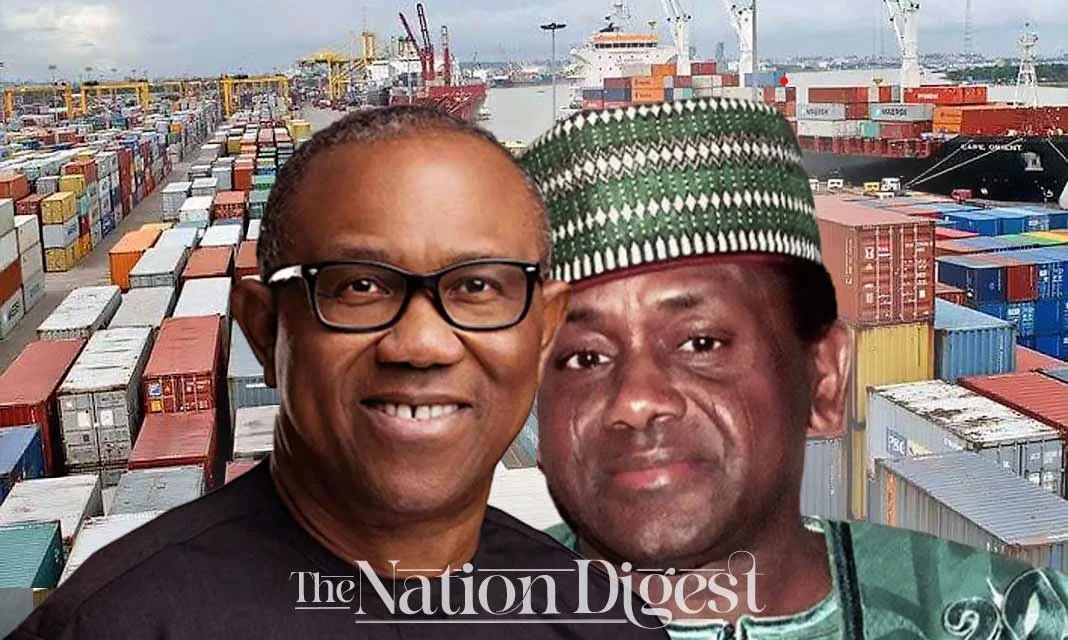The new US visa limit for Nigerians has stirred strong reactions across the country. As of July 8, 2025, most non-immigrant and non-diplomatic visas issued to Nigerian citizens are now limited to a single entry and a three-month validity. While U.S. authorities say it aligns with standard global practice, Nigerians are asking pointed questions: What exactly triggered this policy? Is it really about reciprocity, or are other issues in play?
This shift in visa policy feels more than bureaucratic. For many Nigerians, it touches something deeper. The frustrations of visa denials, and a growing weariness with the unequal terms of international travel. The U.S. Embassy insists the change reflects updated reciprocal terms, but many are struggling to see it as fair, especially when U.S. citizens receive longer validity and multiple entries into Nigeria.
Is This Really About Reciprocity?
According to the Department of State, the change stems from a global process of aligning visa issuance policies with what U.S. citizens receive in partner countries. For Nigeria, American passport holders typically get a three-month single-entry visa, and so, under the principle of reciprocity, Nigeria gets the same.
However, many Nigerians don’t buy this justification at face value. @9ja_aggie wrote,
“Reciprocity! We give American visitors 3 months single-entry. They are just returning the favor.” Yet others questioned whether the U.S. applies this rule consistently.
@osquare78 said, “I don’t have an issue with a reciprocal visa policy; it’s fair for everyone involved. However, can the U.S. also reciprocate by issuing visas to Nigerian passport holders in the same way that Nigeria issues visas to American passport holders?” That’s the crux: While reciprocity is a logical policy, Nigerians feel the practical experience of U.S. visa applications still leaves too many at a disadvantage.
And then there’s the money.
@ibks001 bluntly asked, “So, do people still need to pay $185 for single entry with 3 months validity?”
It’s a valid concern. Paying top dollar for a visa that grants only a one-time, short stay understandably feels like a bad deal, especially for students, professionals, and families with legitimate travel plans.
National Security, Overstays, and Global Politics
The U.S. also cited other reasons for this new US visa limit for Nigerians. The Department of State emphasized criteria such as overstays, secure travel documents, and information-sharing protocols. These are not new concerns. For years, Nigeria has battled issues with overstaying travelers in the U.S., which often places it on watchlists.
Still, some believe this is about more than technicalities. Could the U.S. be sending a signal to Nigeria about aligning with countries like China and Russia under the BRICS framework? One user, @MrVaVeGo, mused:
“What could have potentially triggered this move? Overstaying, BRICS deal, Foreign Affairs policy??? Anyways, as for me and my house it’s #TEAMUSA.”
It’s hard to ignore the wider geopolitical context. Nigeria’s foreign policy has become more assertive in recent years. The Tinubu administration has pursued new partnerships and played hardball in global trade. Could this visa decision be part of a subtle pushback from Washington?
Also Read: Visa on Arrival Policy Upgraded, Not Scrapped – FG
Impact on Nigerians:
Beyond speculation, real people are affected. This policy will hit students, businesspeople, and tourists who now face reduced flexibility and tighter timelines. For business travelers who need to hop in and out of the U.S. multiple times, a single-entry restriction is a real headache.
@Detunjiprimo, in a somewhat philosophical take, said,
“I know that a time will come when the system will correct itself. Thank you for taking a constructive decision on immigration. By this singular act, you have solved immigration issues for the US & Brain Drain for Nigeria.”
But has it really? Many see this as one more reason talented Nigerians will feel blocked from opportunities abroad, not incentivized to stay. The irony is sharp: a policy meant to manage travel might deepen the sense of being unwelcome, even unwanted.
Rethinking the Rules of Travel
The question now isn’t just what triggered the new US visa limit for Nigerians, but what it reveals. The global system of visa reciprocity, for all its supposed fairness, is not experienced equally by all. Nigerians often face steeper hurdles, tougher interviews, and higher rejection rates.
@OCCPriceless put it starkly: “Perhaps then, they will begin to understand the true value of freedom and sovereignty—and be inspired to put their real nations first.” There’s an undertone of frustration, but also a challenge. What if visa stress could become a catalyst for building stronger local systems that retain talent?
Others like @alabyolyde take it even further: “You can stop issuing Visa and you will see that the world will still survive and move on.” Maybe that’s extreme, but it does reflect a growing sentiment — the global South is tired of being treated as second-tier travelers.
Is There a Better Way Forward?
The United States has every right to secure its borders, just as Nigeria does. But this new US visa limit for Nigerians sends a message beyond mere policy. It says something about how nations perceive each other, how power is exercised through paperwork, and how diplomacy now extends to the visa counter.
We need to ask: Is this the most constructive way to manage migration and foster mutual respect? If reciprocity truly guides policy, then fairness must be felt in both directions. Nigerian authorities also need to step up — improving passport integrity, clamping down on overstays, and making visa processes for foreigners more transparent. Mutual respect is a two-way street.
But for now, many Nigerians are left wondering if this new rule is just the beginning of even tighter restrictions. Will it become harder to visit loved ones, attend global conferences, or pursue the American dream? Time will tell.
What do you think? Have you or someone you know been affected by this new policy? Do you think visa rules should be more flexible, or is this the right approach for national security? Let’s keep the conversation going because behind every policy are real people, real dreams, and real consequences.
And that’s what truly matters.




